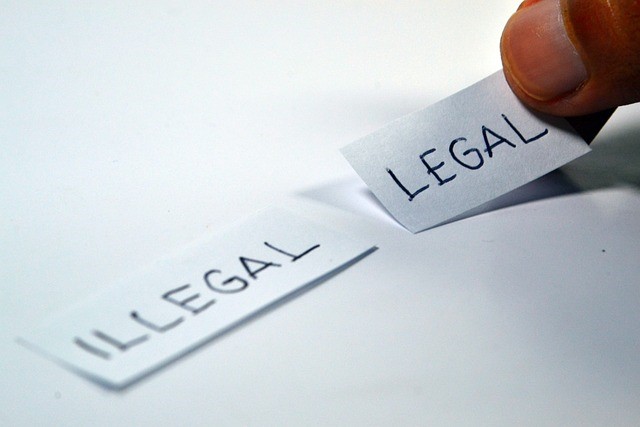
What Actually Is Medical Negligence, And How Can You Prove It?
What Actually Is Medical Negligence, And How Can You Prove It?
Medical negligence is a significant issue that affects patients and healthcare providers alike. It refers to the failure of a medical professional to provide the standard of care that is expected in the medical community, leading to harm or injury to a patient. This article will delve into the definition of medical negligence, its legal implications, how to prove it, and the steps involved in pursuing a claim.
Definition of Medical Negligence
Medical negligence occurs when a healthcare provider fails to act in accordance with the accepted standards of practice within their profession. This can involve acts of omission (failing to do something) or commission (doing something incorrectly). The key elements of medical negligence include:
- Duty of Care: The healthcare provider had a legal obligation to provide care to the patient.
- Breach of Duty: The provider failed to meet the standard of care expected in similar circumstances.
- Causation: The breach directly caused injury or harm to the patient.
- Damages: The patient suffered actual damages as a result of the breach.
Negligence is not simply about making a mistake; it involves a failure to meet established standards that any competent professional would follow under similar circumstances.
Legal Framework
The legal framework surrounding medical negligence varies by jurisdiction but generally involves principles derived from tort law. In many countries, patients can seek compensation for injuries sustained due to negligent medical care. Key legal principles include:
- Bolam Test: This test determines whether a healthcare professional acted according to the standards expected of their peers. If other professionals would have acted similarly under the same circumstances, then negligence may not be established.
- Informed Consent: Patients must be adequately informed about the risks associated with treatments or procedures. Failure to obtain informed consent can also be considered a form of negligence.
Common Examples of Medical Negligence
Medical negligence can manifest in various ways, including but not limited to:
- Misdiagnosis or delayed diagnosis
- Surgical errors, such as operating on the wrong site
- Incorrect medication dosages
- Failure to monitor patients adequately
- Inadequate follow-up care
Proving Medical Negligence
To successfully prove medical negligence, a plaintiff must establish four essential elements:
- Establishing Duty: The first step is demonstrating that a duty of care existed between the patient and the healthcare provider.
- Breach of Duty: Evidence must be presented showing that the provider failed to meet the standard of care. This often requires expert testimony from other medical professionals.
- Causation: The plaintiff must show that the breach directly caused their injury. This can be complex and may require detailed medical evidence.
- Damages: Finally, it must be proven that actual damages occurred as a result of the negligence, which could include physical harm, emotional distress, or financial loss.
Steps to Take if You Suspect Medical Negligence
If you believe you have been a victim of medical negligence, consider taking the following steps:
- Document Everything: Keep detailed records of your medical treatment, including dates, names of healthcare providers, and descriptions of your condition and treatment received.
- Seek a Second Opinion: Consult another healthcare professional for an assessment of your situation and whether negligence may have occurred.
- Consult an Attorney: Speak with an attorney who specializes in medical malpractice cases. They can help you understand your rights and guide you through the process.
- Gather Evidence: Collect all relevant medical records, bills, and any correspondence related to your case.
- File a Complaint: Depending on your jurisdiction, you may need to file a formal complaint with a regulatory body or initiate legal proceedings.
Frequently Asked Questions (FAQs)
What is considered medical negligence?
Medical negligence occurs when a healthcare provider fails to provide appropriate care according to established standards, resulting in harm or injury to a patient.
How do I know if I have a case for medical negligence?
To determine if you have a case, consider whether there was a duty of care, if there was a breach of that duty, whether this breach caused your injury, and if you suffered damages as a result.
Can I sue for emotional distress caused by medical negligence?
Yes, emotional distress can be part of your claim if it resulted from medical negligence and is accompanied by physical harm or other damages.
How long do I have to file a claim for medical negligence?
The time limit for filing a claim varies by jurisdiction but typically ranges from one to three years from the date of injury or discovery of harm.
Do I need an attorney for my medical negligence case?
While it is possible to file a claim without an attorney, having legal representation can significantly improve your chances of success due to their expertise in navigating complex legal processes.
Conclusion
Medical negligence is a serious issue that can have profound consequences for patients and healthcare providers alike. Understanding what constitutes medical negligence and how it can be proven is essential for anyone considering pursuing a claim. By being informed about your rights and taking appropriate steps if you suspect malpractice, you can seek justice and compensation for any harm suffered due to negligent care.
| Aspect | Details |
|---|---|
| Definition | Failure by healthcare providers to meet accepted standards of care |
| Key Elements | Duty of Care, Breach, Causation, Damages |
| Common Examples | Misdiagnosis, surgical errors, incorrect medication dosages |
| Proving Negligence | Establish duty, breach, causation, damages |
| Legal Framework | Based on tort law; varies by jurisdiction |
For more detailed information on medical malpractice laws and definitions, visit Wikipedia on Medical Malpractice.
